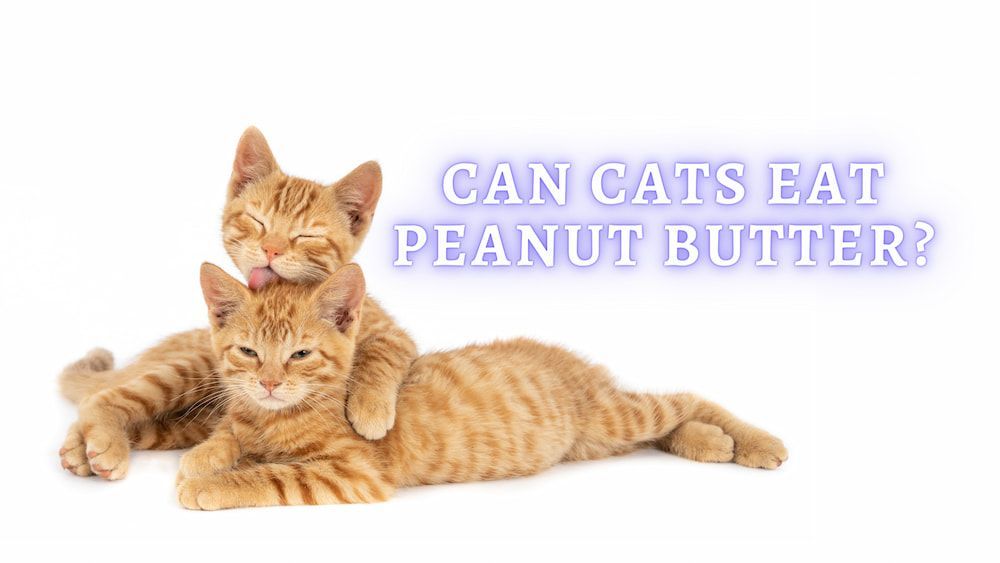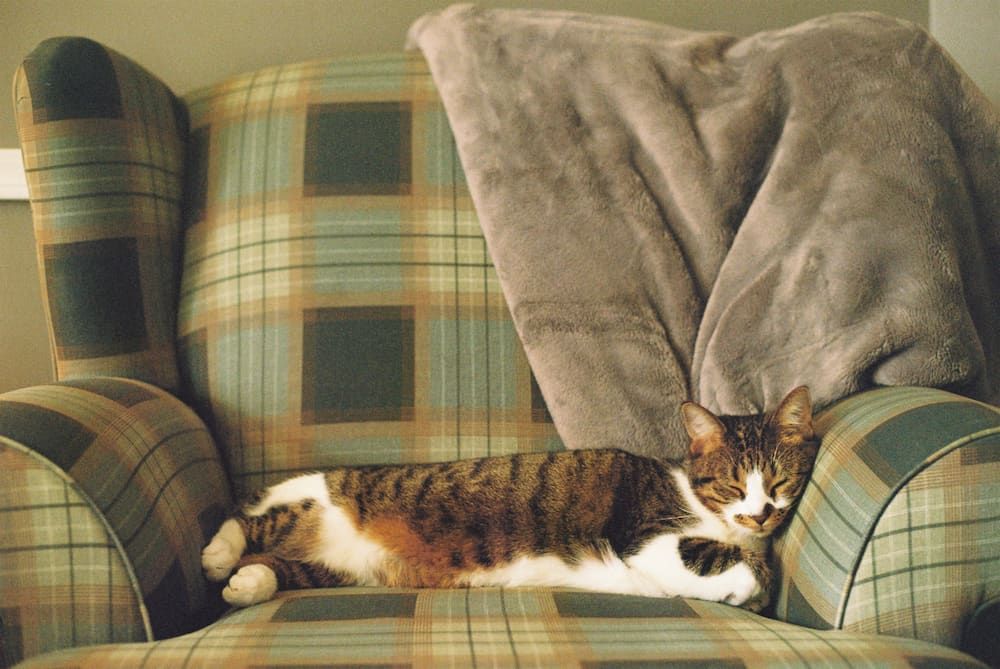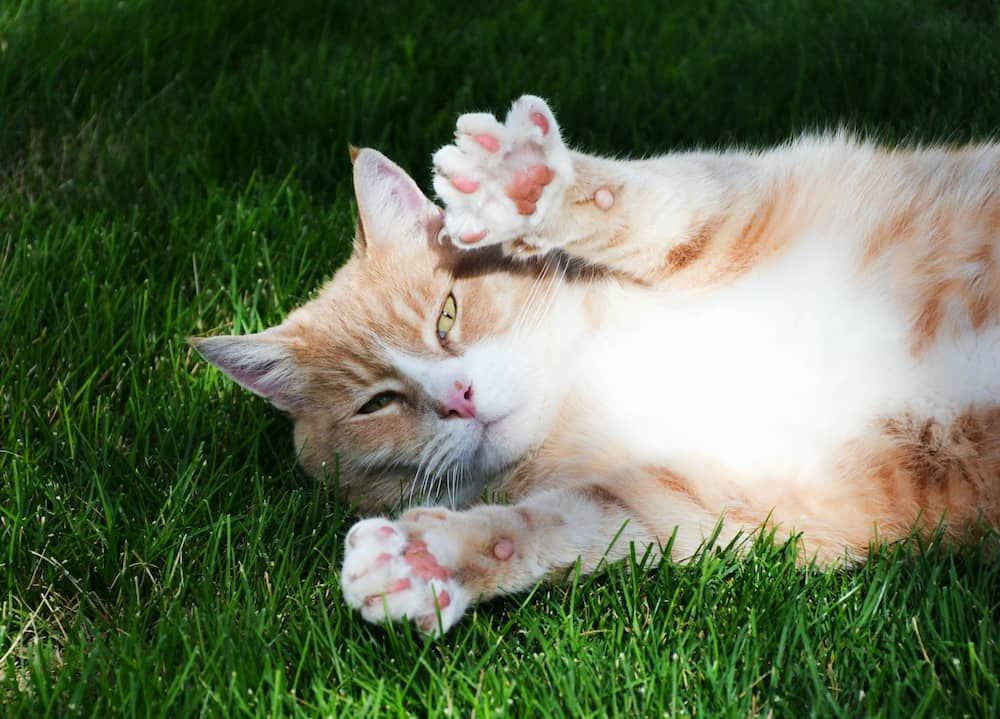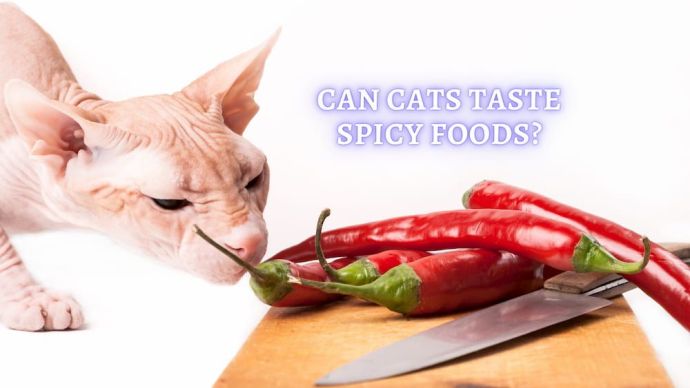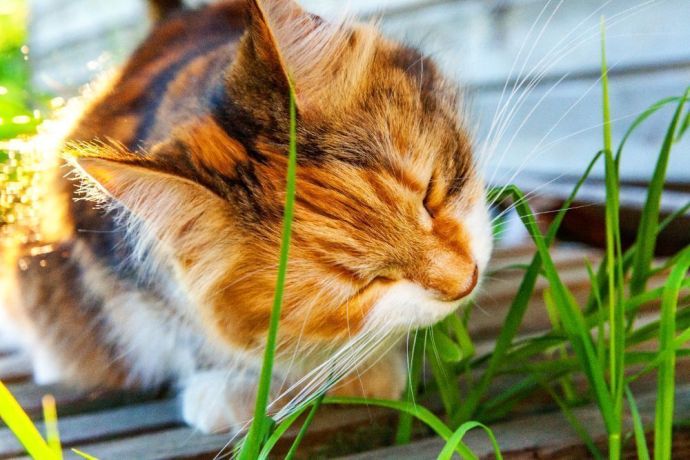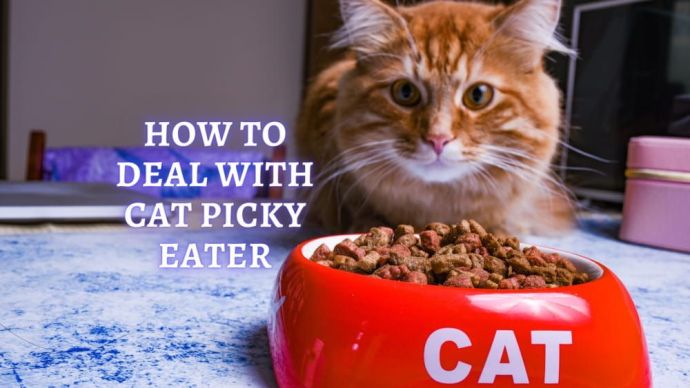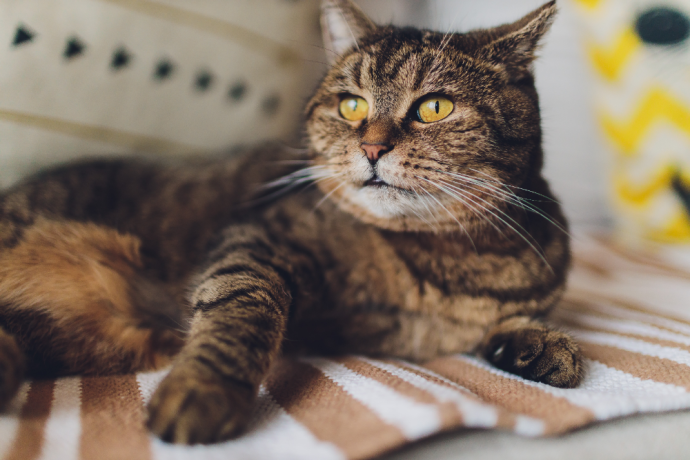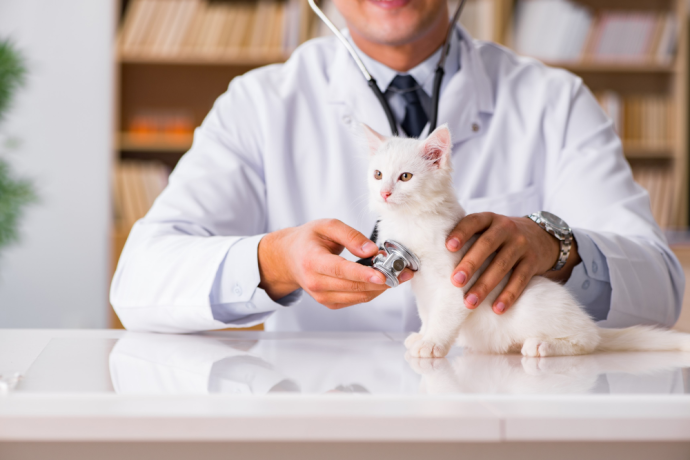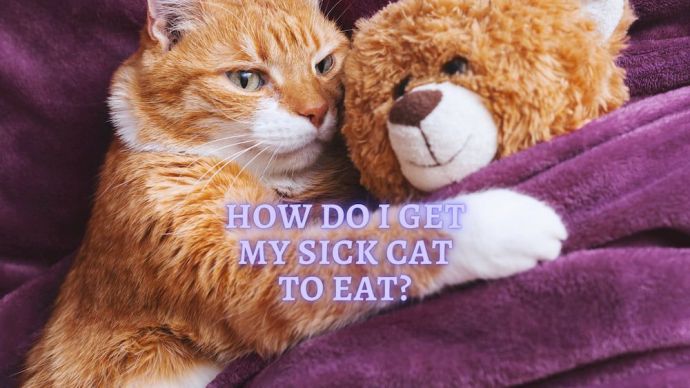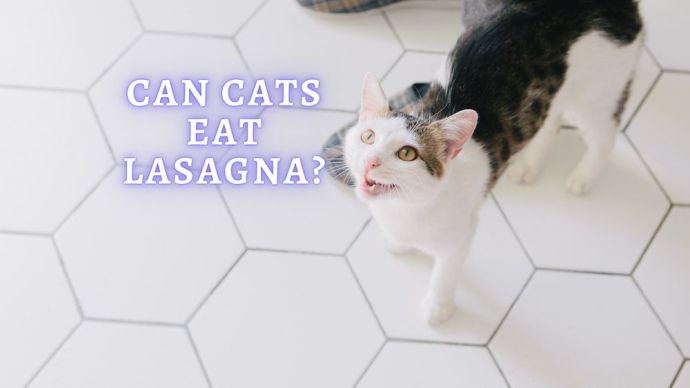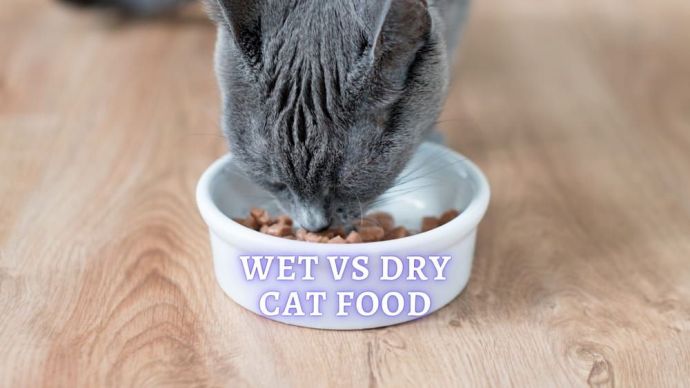Can Cats Eat Peanut Butter? (Expert Advice)
Written by:
Author: Carol Young
Carol has worked in specialty, emergency, mixed animal and general veterinary practices, and enjoys all aspects of veterinary medicine. Her special areas of interest include anesthesia, critical care, emergency, dentistry, internal medicine and small animal nutrition.
View all 62 articlesLearn about our editorial process and veterinary review board.
Viewed: 501
Updated on: 06/15/2023
Peanut butter is a popular treat for dogs, and slathering a dog biscuit with this tasty spread or hiding a pill in peanut butter is a common practice among many canine owners. But you might ask yourself, can cats eat peanut butter too?
Well, sure, cats can eat peanut butter, but just because they can doesn’t mean that they necessarily should. They are true carnivores and don’t typically eat things like peanut butter, surprisingly, some felines may enjoy the texture and taste on occasion. Before offering your feline friend a taste of peanut butter, there are some questions to consider, including are there nutritional benefits? Is it safe? And are there are any drawbacks to offering your kitty a taste now and then?
Do Cats Like Peanut Butter?
As mentioned above, felines are true carnivores, and most may turn up their noses at the smell and taste of this popular treat. However, some kitties may enjoy a sample now and then. Kitties are motivated by scents, and since they are carnivores, they are typically drawn to foods that contain a lot of fats and oils, and peanut butter does have a high amount of fats and oils. However, some cats may prefer the smells and taste of animal fats rather than plant fats, so the question of whether or not cats like peanut butter depends on their personal taste. Some may enjoy this tasty spread, while others not so much.
Are There Any Health Benefits For My Cat From Peanut Butter?
Peanut butter is packed full of protein and energy. It contains the healthy kind of fats called monounsaturated and polyunsaturated fats which are associated with a lower risk of weight gain and obesity. Peanut butter also contains good amounts of Vitamin E, Niacin, Vitamin B6, Magnesium, and Manganese. It also contains O©mega-6 fatty acids, which can lower LDL and HDL cholesterol levels in humans. The vitamins, fatty acids, and nutrients are as essential to cats as they are to humans.
However, it’s important to note that cats have specific nutritional requirements and need a balanced diet containing other nutrients. One of the more important nutrients is the amino acid taurine, which can only be found in animal proteins. This is why felines should never be fed a strictly vegetarian diet.
Although peanut butter contains essential fatty acids and some vitamins beneficial to cats, it’s important to note that it is not a complete diet. Since it is so high in fat and calories, it can lead to weight gain in your cat if offered frequently. However, it has more empty calories than useful calories and contains a large amount of sodium that can be harmful to your feline companion. If your kitty loves peanut butter, make sure that you only offer a tiny bit, less than a 1/4 tsp, once in a while. Most house pets do not need the extra calories or sodium.
READ MORE: Can Cats Eat Canned Tuna?
What to Know About Cats and Peanut Butter?
Although peanut butter is not harmful to your feline friend, there are several precautions to consider before offering them a taste of that nutty goodness.
- Peanut butter is safe for healthy cats with no underlying medical conditions such as obesity, kidney disease, or diabetes. It is packed with calories and energy, and many brands do contain sugar or artificial sweeteners. The high protein content in peanut butter can put an extra burden on the kidneys in cats with kidney disease, and the extra sugar can elevate blood sugar levels in diabetic cats. Also, take note that many artificial sweeteners are toxic to cats and cause kidney and liver damage and even death. Always check the label before offering your pet peanut butter.
- Every kitty is an individual, and it is vary when it comes to tolerating certain foods. Some cats may consume peanut butter without any issues, while others may experience some gastrointestinal upset such as vomiting, diarrhea, or other adverse signs. If your cat comes running every time you open a jar of peanut butter, make sure that you only offer a little taste now and then. If there any stomach issues, vomiting, or diarrhea after eating peanut butter, discontinue offering peanut butter as soon as possible.
- We all know that peanut butter is sticky, and more than one of us has experienced getting it stuck to the roof of the mouth. This can also happen to cats. As a result of its sticky and thick consistency, peanut butter can pose a choking hazard. If you offer a taste, start with just a tiny amount, and make sure that it does not cause any choking reactions.
- The majority of a cat’s calories should come from animal proteins and other foods specially formulated to offer proper nutrition. Human foods like peanut butter should only be given once in a while and in moderation to cats. In light of this, moderation and caution are important, and always monitor what your pet eats and pay attention to any adverse gastrointestinal reactions.
- Some brands may contain artificial sweeteners, such as xylitol, which is highly toxic to both cats and dogs. Xylitol can cause a drastic drop in blood sugar levels and result in vomiting, lethargy, loss of coordination, seizures, and even liver failure. Always check the nutrition label on your jar of peanut butter before offering some to your cat. They should never eat foods that contain artificial sweeteners.
- Peanut butter doesn’t offer your cat any nutritional value. Felines are carnivores, their diet should consist of a balanced diet, including animal proteins, meat, and fish. Feeding peanut butter in any amount has no benefits and does not contain all the vitamins and minerals your cat needs. At best, peanut butter may be a tasty treat, but it essentially has little nutritive value for your pet.
- High in salt. Many commercial peanut butter brands have a lot of salt. High levels of sodium can cause big problems for your feline friend and should be avoided. If your kitty loves it, try purchasing a low-salt or sodium-free peanut butter. Two tablespoons contains 5mg of sodium. According to the Journal of Nutrition, average-sized cats need about 21 milligrams of salt per day (that would be eight tablespoons of peanut butter). High salt intake can cause kidney, urinary, and increase thirst in your cat, so it’s vital to watch sodium intake in your feline friend.
What Should I Do If My Cat Suffers From Diarrhea After Eating Peanut Butter?
Cats are all different, and some may experience gastrointestinal upset after ingesting even a small amount. If your kitty suffers from diarrhea after eating peanut butter, it’s best to discontinue offering any to your feline friend in the future. Kitties with chronic GI issues, such as irritable bowel syndrome (IBS) or irritable bowel disease (IBD), can experience bloating, vomiting and diarrhea after ingesting peanut butter, further exacerbating the inflammation of the stomach and the GI tract. If your kitty has a sensitive stomach or suffers from GI issues, avoiding offering him a peanut butter and stick to foods that are better tolerated.
READ MORE: Are Probiotics Good for Cats? Veterinarian Answers
FAQs
Is peanut butter safe for dogs and cats?
If the peanut butter does not contain any artificial sweeteners such as xylitol or aspartame, then it is safe for both your dog and cat. However, keep in mind that peanut butter should only be offered sparingly and only as a special treat, and if your dog or cat has any underlying health or GI issues, it’s best to avoid offering it as a rule. Also, peanuts do contain naturally occurring aflatoxins, which are a type of mycotoxin. Mycotoxins are molds that can be toxic to the liver and even lead to liver failure. Although the USDA monitors peanut butter products, it’s best to keep this in mind for both you and your pet.
What foods are poisonous to cats?
Several foods are toxic to cats, and as mentioned above, artificial sweeteners such as xylitol and aspartame can cause drastic damage to the kidneys and liver. Other foods that are harmful to cats include onions, garlic, chocolate. Grapes and raisins, and many dairy products. Onions and garlic can cause anemia in cats, and chocolate can cause diarrhea and liver shut-down due to the chemicals called methylxanthines that are often present in chocolates. Grapes and raisins can cause kidney damage, and dairy products can also cause GI upset due to the lactose, which cats cannot metabolize. Raw foods should also be avoided as they can contain the bacteria Salmonella. If you have questions about which foods are harmful to your feline friend, consult your veterinarian.
What is safe for cats to eat?
Foods that are safe for cats are diets and treats specially formulated for cats. However, there are several human foods that you can offer your cat without worrying about any adverse side effects. These include cooked salmon, chicken, bananas, spinach, fish oils, eggs, cantaloupe, pumpkin, oatmeal, turkey, cheese, peas, blueberries, and apples. Many of these foods contain beneficial proteins and vitamins and may offer a nice change for your cat from the usual kitty kibble. It’s important to remember that cats can differ in their appetites, and some cats may not like a nibble of your banana, while another may want to sample your spinach salad with peas.
Can I give my cat medication with peanut butter?
Some veterinarians may caution you not to offer peanut butter to your cat; you may find it useful when administering oral medications or pills. If you think you might try this technique, be sure to coat the pill with a small amount of peanut butter, and ensure that your cat has plenty of water to drink afterward.
Can cats be allergic to peanut butter?
Yes, they can be allergic to peanuts, just like humans. Unfortunately, this can turn into a true medical emergency. Cats can develop food allergies, and when it comes to allergies, adverse reactions can be severe and life-threatening. As an owner, it’s important to recognize the clinical signs of a reaction to peanuts. Symptoms include:
- Itching.
- Hair loss.
- Diarrhea.
- Skin irritation and inflammation.
- Chronic ear infections.
- Vomiting.
- Lethargy.
- Weight loss.
- Loss of appetite.
If you think that your cat is allergic to peanuts or any other foods, contact your veterinarian immediately.
Final Thoughts
Although most cats may not be interested in peanut butter, you may have one who enjoys the taste. In that case, offer only tiny amounts of this tasty spread, and always consult your veterinarian before giving your kitty peanut butter.
 Cat Care Why Does My Cat Attack My Legs? 10 Reasons Why and What To Do About It (Vet-Approved Advice)
Cat Care Why Does My Cat Attack My Legs? 10 Reasons Why and What To Do About It (Vet-Approved Advice) - 45566
- 21
 Cat Veterinary Tips Cat Stomach Gurgling: Vet Advice on Why is Your Cat Stomach Gurgling?
Cat Veterinary Tips Cat Stomach Gurgling: Vet Advice on Why is Your Cat Stomach Gurgling? - 35339
- 4
 Cat Veterinary Tips My Cat Lost its Voice: Can Cats get Laryngitis? (Vet Advice)
Cat Veterinary Tips My Cat Lost its Voice: Can Cats get Laryngitis? (Vet Advice) - 23247
- 13









